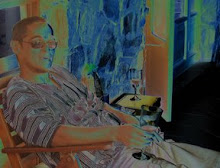Saturday, 27 December 2014
Crumbling Facades...
I for one was keen to leave the teeming humidity of Dar es
Salaam. The two hour drive from the camp site through the city was not without
incident though as we were stopped by a two-man road block and while G went
through his usual routine with the white-clad police, some of the travellers
on-board took photographs of the bustle. One of the locals complained to the
police who were only too happy to be given a reason to exert pressure in the
hopes of exacting another bribe. Apparently, it is against the law to
photograph a policeman or soldier executing their duty and the threat of
imprisonment was bruskly made while one of the pair climbed into the cab and
the other joined the rest of us at the back of the truck. I smile at the irony
as I think of Eric Cartman’s ‘authority’ refrain. There is nothing as maddening
as a stupid fucker in uniform and I had to bight my tongue as the surly tirade
continued for the few minutes it took for us to reach the local police station
where a more senior officer took his turn to go through the same uniformed
song-and-dance routine of threats and hints that this ‘problem’ could be made
to disappear. And disappear it did after a ‘fine’ of 60000 Shillings. This set
the tone for my reflections… And the notion of how the façade of democracy
quickly crumbles when dealing with career bureaucrats
The sprawling urban slum that comprises most of the city is
populated by poor people eking out an existence in un-serviced squalor. Rules
of the road are virtually non-existent and prostitution and crime are rife.
Yet, most women are covered with burkas and an almost missionary, conservative and
‘traditional’ mind-set prevails. The usual counterfeit brands are worn and the
sheer extent of the commerce would imply a definite Western aspiration of the
mostly mindless middle-class. Gender roles and social status is for the most
part set and unchallenged. There is not much progressive discourse and everyone
seems to be either hustling or on the make. But I suppose that the most telling
indication of the malaise was the signs along the road through one of the
unfenced National Parks that were written in Swahili with a price quoted in US
Dollars alongside the names of animals. I am not sure whether these figures are
fines for harming the animals or prices for hunting them.
Suddenly I am not surprised that the AU is what it is. A
gathering of governments that seem to be playing at being in power while in
fact advancing the agendas of the Chinese or the Indians or more traditionally
the West and most likely a combination of essentially foreign interests. Corporate
securities and capitalist dictates have superseded notions of equality and
justice and corruption seems to be the order of the day, while ordinary people
go about their lives scratching in the dirt to survive with their heads bowed
in prayer and supplication. The scarred and scuffed façade of liberation has
crumbled. In Kenya talk of terrorism is front page news and in the City of Dar
es Salaam, there is a Barrack Obama Road. Black Africans are still poorly paid
labourers who defer to their bosses who in turn – and irrespective of the
colour of their skin – are not in business to develop the skills of their
workforce but instead – as elsewhere – to make as much profit as possible.
For me it is not enough to be a proud African or for that
matter, to mistake arrogance for pride. It is not enough to speak of liberation
and democracy or any other noble ideal while your mind has successfully been
colonized. Happy to be accepted or even just acknowledged by the oppressor for
your ability to unquestioningly assume the values and characteristics of what
was once the moral and physical enemy. At the end of the day, it does not
matter how bright or shiny the uniform if wearing it allows you to continue to be
stupid.
Wednesday, 17 December 2014
Ripping the night fantastic...
We were stuck in traffic en route to the camp site situated
along the coast to the south of the city of Dar es Salaam when suddenly the
driver of a light delivery truck jumped from the cab and charged between the
cars. After a few minutes he returned despondently and walked around the
passenger side of his vehicle before climbing into the cab with his air filter.
Someone had stolen the cover.
Later that evening I was returning to my tent after a shower
when frantic screaming from the beach drew my attention. One of the guests was
charging her phone just outside her tent when one of the locals walked by and
casually unplugged the phone and charged down the beach. Needless to say, she
was in a state.
Welcome to Dar es Salaam.
Crime was just another part of growing up on the Cape Flats
and although I was cautious, I was not too concerned. Shit happens after all:
no matter where you are. A few nights later I was asleep when I heard a ripping
noise and upon waking I discovered that someone was cutting through the
mosquito mesh of my tent. “Jas naai!” was all it took for the fucker to run off
into the predawn darkness and by the time I stood naked outside my tent the
would-be thief was nowhere to be seen. Pretty much like the security who came
ambling up wiping the sleep from their eyes. After a brief investigation, they
confirmed that they suspected the guy in the tent next to mine. He was a local
who had spent a romantic night with his wife and even though I knew that it
could not have been him, they badgered him for more than fifteen minutes and
all because he did not get up to investigate when his wife told him earlier
that she had heard someone sneaking about outside. Talk about racial profiling.
At least I was up in time to watch the sunrise and listen to the boom of the
local fishermen using explosives to collect the morning’s catch.
The Sunrise Beach Resort is one of more than a dozen such
concessions scattered along the coast and with legislation preventing the
fencing off of the beach, the lukewarm water was filled locals enjoying the
ocean. This was a welcome sight when compared with South Africa where so many
beaches have been privatised and where access is controlled by private security
companies. To the right of the fancy resort where day visitors pay 5000
Shillings to enter, was a tiny ramshackle Rasta bar where the inferior strain
of local ganja was readily available and where a couple of beach boys and girls
hang out every day waiting to be picked up by tourists who come here especially
to purchase the endless array of sexual indulgences on offer.
But the flesh trade paled in comparison to the amount of
micro enterprises lining every major thoroughfare and side road. Tiny hovels
selling every conceivable kind of goods and service. Some with just fresh fruit
or a single vegetable while others stocked a wide variety of clothing or
foodstuffs with restaurants and pubs and repair shops in between. And every one
making some sort of living.
And having shared my blood with the mosquitoes, and sweated
through the steaming nights, we prepare once again to depart this sub-tropical
paradise where the wind and the waves and the humidity will remain to fan the
insatiable desires of foreigners and locals alike.
Sunday, 14 December 2014
Magnificently sad...
Bad roads, speed bumps, detours, traffic and a border
crossing. It took us close to eight hours to cover just under three hundred
kilometres from Nairobi to Arusha on the first leg of the journey. At the
Kenyan border G discovered that there was an oil leak and when he tilted the
cab to check what was wrong, he discovered that the repair done in Nairobi was
shoddy and one of the plugs on the diesel pump was missing – probably because
it had not been tightened – but with the help of a piece of broom stick and a
couple of screwdrivers, the immediate problem was quickly solved even though G
had to (casually) walk across the border into Tanzania with some locals to buy
twenty litres of oil.
From the outskirts of Arusha, the bustle slowly intensified
with over-laden trucks labouring at the lead of an unruly assortment of cars
and buses and motorbikes weaving in between. Ramshackle wooden structures lined
the sidewalks with interspersed buildings of a more ‘conventional’ design and
every single one conducting some sort of business. Blackened young men selling
large bags of coal piled high and held in place with woven string. Down the
side roads people were busy living profusely!
We camped at a site just outside of the city where a week
before there was a serious flood leaving one of the overland trucks bogged down
in more than a meter of mud. Mop up operations were underway and while the
group went off to the Serengeti, I stayed behind to breathe. The owners of the
Snake Park Camp site are a beautiful elderly South African couple who moved to
Tanzania twenty years ago to establish a sanctuary for snakes. Deon helps to
manage the facility and is a friend of one of their sons and the few nights I
spent chatting to them at the bar reminded me of similarly pleasant times spent
with good friends in the Karoo.
On Tuesday morning I walked along the highway to the weekly
vegetable market for potatoes and hundreds of traders with bags and boxes of
goods were arriving by the busload. As I took it all in, I wondered what the streets
of South Africa would have been like if bylaws and policy had not killed
informal trade.
Before we eventually left Arusha, we stopped at the Cultural
Heritage Museum which has curated the most magnificent collection of African
painting and sculpture that I had ever seen – a collection of such scope that
it alone could one of ensure the City’s title of being the Capitol of African
Art. Intricate sculptures from massive ebony logs, of entire families over the generations,
others of folk tales or mythical characters and all with such exquisite
craftsmanship and exact detail with one of the larger pieces reputed to have
taken eighteen years to complete. And then, housing this mind-blowing overload
is the museum itself. Designed by a local architect and artist who created a
spiral of continuous wall-and-floor space to accommodate what could comfortably
be called a home for the artwork on display. And yet, once again reflecting on
my moment of awe, I think about the state of the South African National Gallery
in Cape Town with its mostly insipid colonial paintings and marked lack of
support of local contemporary artists – let alone the privately owned galleries
(such as this) that follow every mindless commercial trend to ensure that great
South African art is deemed a foolish cousin to the purely decorative clichés
that get scooped up by a piddle of buyers.
Thursday, 4 December 2014
Over Land
it is all over land
over stolen land
land stolen over
and over and over again
stolen from the ancestors
the ancestral guardians
over their dead bodies
buried beneath the land
soaked in blood
barely discernible
hardly remembered
the cracking veneer
stolen land fissures
over and over
Tuesday, 2 December 2014
Subscribe to:
Comments (Atom)




































